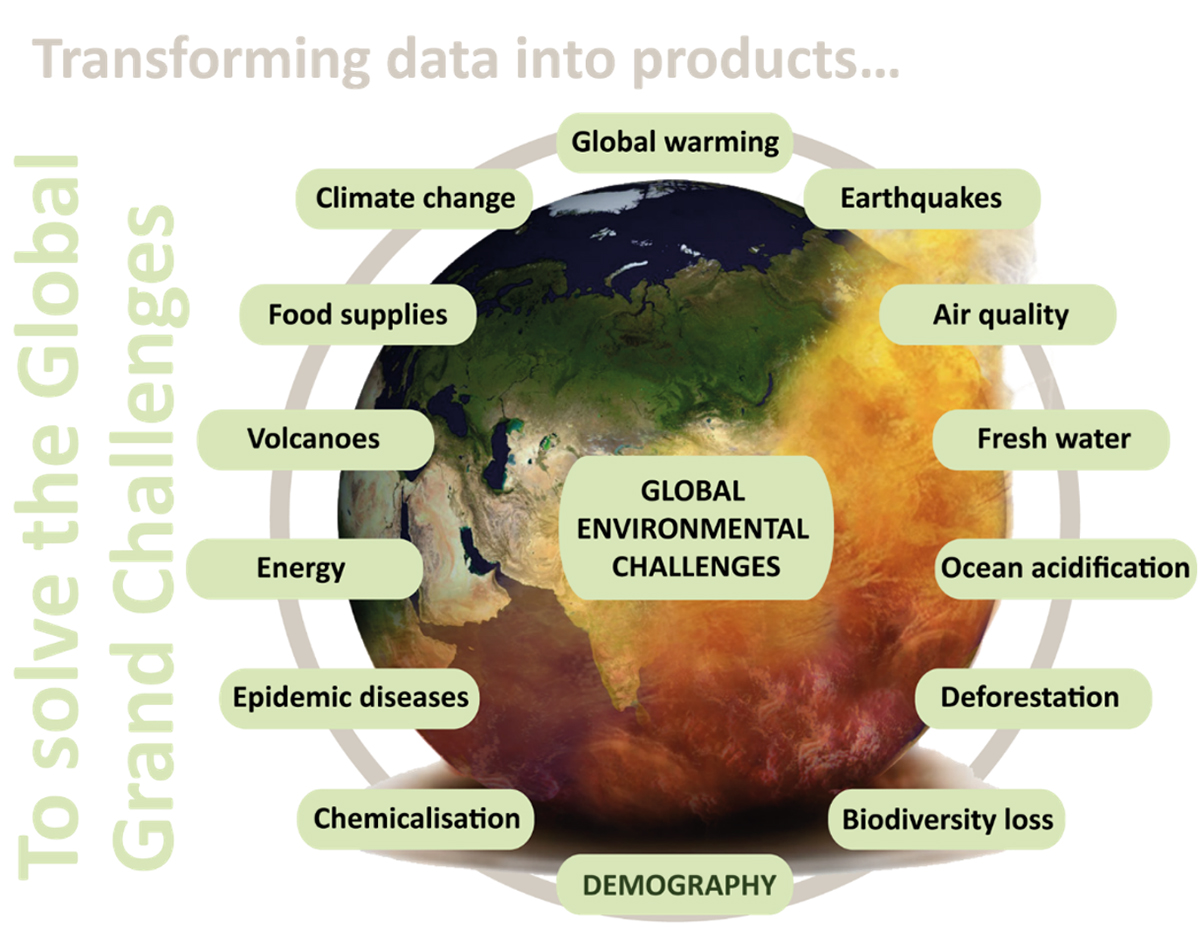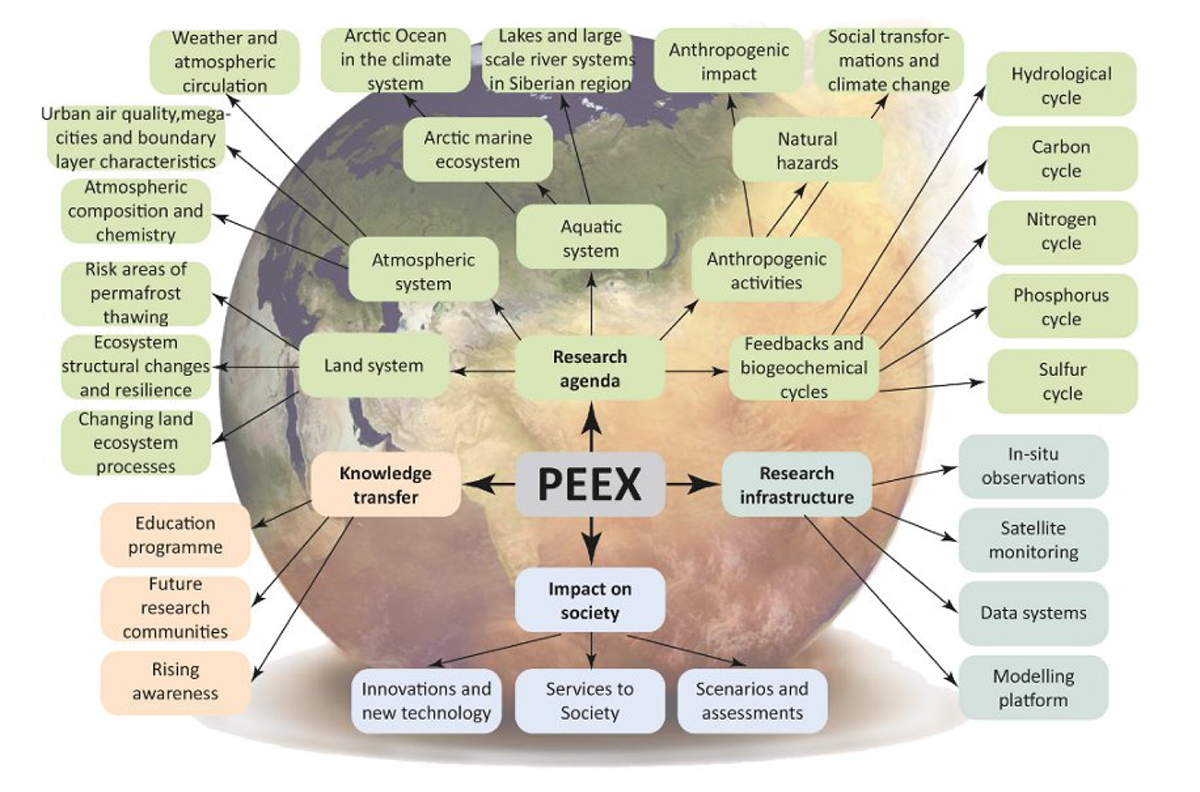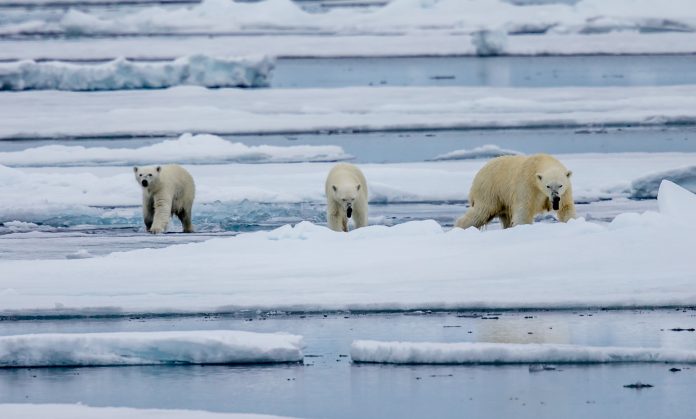Stephany Mazon from the Institute for Atmospheric and Earth System Research at the University of Helsinki, discusses how the ‘Hack the Arctic’ hackathon is making use of Arctic environmental data
We are well aware that we are facing global environmental challenges, such as extreme weather, rising sea levels, and biodiversity loss. We also know that to solve them, we have to work together. Their interlinked nature demands it.
Scientific data is allowing researchers to understand and predict the changes in the Earth System. This same data however can further assist other users to navigate and prepare for these changes through information and services tailored to their specific needs. In order to explore different possible user needs, we proposed employing a hackathon event that gathers multi-disciplinary teams through a public call to make use of existing environmental data from a network of research infrastructures. In our first hackathon, we focused on the Arctic region.

Making use of Arctic environmental data
Hack the Arctic is a 48-hr online hackathon open to anyone interested to make use of Arctic environmental data. The event is co-organised by INAR of University of Helsinki, including its PEEX initiative, together with ICOS Head Office and the ENVRI Community, bringing together a compilation of datasets and science mentors from their respective communities under one roof.
The participants gather on a virtual networking platform (12-14 March 2021) organised by Junction App, form teams around shared interested, skills, and aims, and work on their project for a weekend. In the virtual platform, participants have access to scientists from the contributing data providers who offer mentorship on both science and data handling.
Selected keynote talks are streamed throughout the weekend to serve as inspiration, and networking virtual spaces are open to allow interaction among the international group of participants through the weekend. The final projects are presented as two minute videos and shared publicly. The finalist projects are selected based on Community voting, where participants can vote for the best videos under criteria based on innovation and applicability. The hackathon is open for anyone, and participating students receive a certificate of completion, encouraging not only a final product, but a learning experience.
PEEX initiative
This is in line with the PEEX initiative goals. PEEX, or the Pan-Eurasian Experiment Project, is a multidisciplinary climate change, air quality, environment and research infrastructure programme focused on the Northern Eurasian including the Arctic regions.
Within its objectives detailed in the PEEX Science Plan, it aims to cater to the scientific community in its Research and Research Infrastructure modules, as well as to its societal users in Knowledge Transfer and Impact on Society modules that include education, training, and information (Fig 2).

The hackathon provides a platform to unite the research and society components of the PEEX aims. PEEX is additionally an umbrella to a network of projects, including the iCUPE (Integrative and Comprehensive Understanding on Polar Environments) project and the AASCO (Arena for the gap analysis of the existing Arctic Science Co-Operations). The motivation of iCUPE was to develop novel, integrated, quality-controlled and harmonized in-situ observations and satellite data in the polar areas, as well as data products to the end users.
AASCO is an on-going platform to join the multidisciplinary community of Arctic science and Arctic development; both project aims are put into practice under the Hack the Arctic event. PEEX and iCUPE was the initial inspiration behind the topic for the hackathon. The event is thus a good example where we can address a pressing issue of finding alternative uses and users to research data.
In order to guide possible products from the Hack the Arctic event, we defined five challenges for participants to address:
- Map the available data coverage of the Arctic;
- Design a service that uses science data for policy-makers,
- Design a service for citizens;
- Explore Svalbard data as a case study; or
- Design a science visualisation tool.
It is worthwhile to highlight the opportunities that a hackathon event offers. It provides an alternative to the linear and compartmentalised process with one that facilitates co-design and ideation by joining expert knowledge, technical know-how and possible end users in a common space.
This feedback process is beneficial to scientists. As a by-product of the Hack the Arctic we will be able to detect gaps in our existing data, evaluate the current accessibility and operability of our datasets, and identify needs that require addressing.
Before, as scientists we could only share knowledge, now we can also share data and allow others to derive further knowledge and applications from it.
*Datasets
Hack the Arctic is a collaboration between its organisers and partners from their communities of research projects and infrastructures. For INAR these include SmartSMEAR, the PEEX initiative, iCUPE, and WMO GAW collaborators. ICOS-ERIC includes the ICOS portal. The ENVRI Community includes the presence of SIOS, ACTRIS, SeaDataNet, eLTER.
More information:
Stephany Mazon
Research Coordinator, INAR
Hanna K. Lappalainen
PEEX Secretary General, INAR
hanna.k.lappalainen@helsinki.fi
www.twitter.com/HannaLappalai2
Tuukka Petäjä
iCUPE Coordinator, INAR
Please note: This is a commercial profile
© 2019. This work is licensed under a CC BY 4.0 license.











